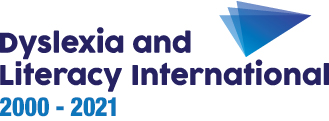1. Inclusion – policy into practice
Principles of inclusion
This part sets out the rights of the child, practical considerations and what can be done in order to provide an inclusive setting for children with learning difficulties such as dyslexia.
What is inclusion?
UNESCO considers inclusion to be a fundamental human right.
‘Inclusive quality education is based on the right of all learners to a quality education that meets their basic learning needs and enriches their lives. Focusing particularly on vulnerable and marginalized groups, this policy ensures each and every learner can develop his or her full potential.’
The ultimate goal of inclusive quality education is to end all forms of discrimination and foster social cohesion.’
(from the UNESCO website)
Your role as teacher is to help all children to develop their strengths to the maximum in a friendly atmosphere where they learn to respect each other. Whatever learning difficulties they have, they should not be stigmatised by being set apart from the others.
This is a huge challenge.
However, according to Dr Harry Chasty, international consultant in learning difficulties, 90% of children with dyslexia can learn effectively in a mainstream classroom. But this can only happen if the classroom teacher has been trained to understand dyslexia, knows how to identify it and can adapt his or her teaching to the child’s learning needs.
The case for not separating children with dyslexia from their classmates is strong: they will not feel excluded and lose self-esteem. Children without difficulties also benefit. These children will be enriched by having a role in helping others; they will appreciate the fact that people with dyslexia, even if they have difficulties with reading and writing, have their own special qualities and abilities.
Some countries have already put the Inclusion policy into practice. Finland, which comes first in international surveys for its outstanding results, is one example. All children are taught together. Those in need of extra help attend smaller groups taught by specialists in, for example, dyslexia or the autistic spectrum. Otherwise they learn with and from each other in the mainstream.
In some cases individual help can be given by specialists in dyslexia. In this case you should liaise with the person concerned.
Beware of not taking the children out of activities, for example sports, arts, or design and technology, at which they may excel and which raise their morale.
If you want to know more about UNESCO’s policy for inclusion to discuss it with your course partner, see the UNESCO web site.


